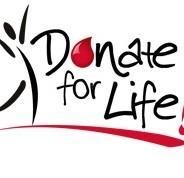
It only takes about an hour from your busy schedule and it may save an existence. Donating blood might not only benefit the individual who received the blood cells but could also improve the health of the donor. Do you know the potential health benefits of donating blood. As the most obvious health benefit of donating blood may be the wonderful feeling produced from giving something vital to a person who needs it, the benefits of donating blood may extend beyond this to having an optimistic impact on the donor’s health.
Research indicates that, in general, Americans often consume more iron every day than is necessary permanently health. Ingestion of amount of iron beyond a certain amount can promote formation of toxins in the body. Free radicals have justly earned their track record of causing cellular changes which could disrupt normal cell function and increase the risk of certain chronic diseases for example heart disease and cancer. This really is more likely to be a problem for males and post menopausal women since women of kid bearing age shed excess iron through regular menstrual cycles. If an individual happens to be a red meat eater, the danger for iron overload could be even higher.
Benefits of Blood Donation

Health Benefits of Blood Donation
Blood is really a necessity for each certainly one of us. Vital for living and maintaining body mechanisms, blood provides nourishment to body tissues and also the organs. There are innumerable reasons why one needs blood. The requirement for blood may arise from medical conditions, injury, road traffic accidents and giving birth related complications. ‘On time’ use of blood transfusion is a life-saving measure a treadmill that can treat a significant illness in patients. Exactly why people engage in the noble act of blood donation is definitely social belongingness and responsibility towards society.
Significance of Blood Donation
Blood can also be ascribed as the ‘fluid of life’ because it handles the basic functions that sustain life. Its primary functions include transporting oxygen in the lungs to body tissue, co2 from body tissue towards the lungs and hormones from glands through the body. With a dysfunction associated with a of these functions, huge numbers of people can succumb to hemorrhaging if it is not given in time for you to nourish and cleanse their body.
Donating blood gets to be more important because few people has the same blood group. In most, there are four blood types (blood groups) categorised based on Rh factors. Blood extracted via a transfusion must match the blood number of the patient. To obtain a right diamond necklace, patients make autologous blood donations before at risk of the surgery.
About Blood
In simple terms, blood can be explained as the fluid present within our body that carries oxygen in the lungs to other regions.
Blood also takes across the waste that is needed to become disposed off the body.
Blood supplies body tissues with nutrients for example glucose, amino acids and fatty acids.
Blood also takes care of immunological functions (circulation of white blood cells and detection of harmful radicals by antibodies), body’s self-repair mechanism (coagulation), regulating body’s pH, regulation of core body temperature and hydraulic functions.
An adult’s body has about 4-6 litres of blood.
Your blood can gift life to a person, who cannot make blood inside a limited duration. It’s our moral duty to assist those in need. You might require blood at any time of time due to some unfortunate or medical condition.
Here’s your opportunity to make a unique contribution towards the health and survival of others. Not everybody gets such an chance to participate in a noble cause. For those who have a chance, save an existence!
Iron Reduction
Studies have begun to indicate that donating blood might help reduce excess amounts of iron in the blood. Excess blood iron could be dangerous, as it continues to be linked to increased risk for cardiovascular disease. Women of child-bearing age reduce their iron levels every month through menstruation. Men and post-menopausal women, however, don’t experience this regular purging of iron, which can be a contributing element in the higher rates of heart disease during these populations. Donors shouldn’t be concerned about losing an excessive amount of iron, as just before each donation, an evaluation in conducted so that the donor’s levels are not lacking.
Health Screening
Before donating blood, donors are requested a brief health history and screened for basic physical health. Donors is going to be made aware of such things as pulse, blood pressure, body temperature, cholesterol, and hemoglobin levels. Blood donors may also be screened for infectious diseases for example HIV and Hepatitis. While blood donation shouldn’t be used purely as a way for obtaining these test results, donors are notified when they test positively for just about any diseases. Some donation sites may also be able to refer donors which may be at risk to further counseling or health care. Even if the blood donation center is not able to refer or supply the donor with medical help, the donor may benefit by at least being informed about potential health concerns, which may be further discussed having a primary care physician.
Public Health
As the screening taking place during blood donation may benefit individuals, the data from blood donors like a whole has the potential to inform researchers and also the general public as well. Though any test results concerning donate blood are confidential as necessary for law, researchers can ascertain general trends regarding health and disease. Specifically, new programs are now being tested to determine if blood donors are following on health advice given throughout their screenings. With the ability to determine risks for major health concerns for example cardiovascular disease and diabetes, public health officials might have new avenues that to help the public understand and manage their health.
